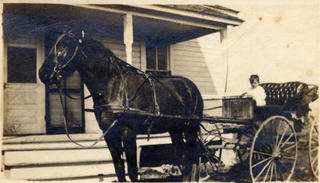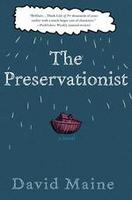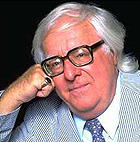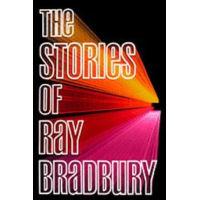 I am totally convinced that my cat thinks human-ish thoughts. His eyes are too expressive.
I am totally convinced that my cat thinks human-ish thoughts. His eyes are too expressive.
When I quickly say his name for no reason, he snaps his neck around and instantly meows and there is a look on his face that is clearer than the human word “What?”
Often when I sit down to eat, I notice that Jack also decides that this is the time to saunter over to one of his two dishes (one containing real organically healthy expensive food and the other containing a high end version of feline junk food) and he begins eating too. Staring at me occasionally, peering up, nine times out of ten, above the junk food dish. (See? Just like a human!)
He likes to linger around my feet as I am brushing my teeth. So, I sort of rub his back with my foot and he just loves it, rolls around, halfways to heaven. But if I put my foot actually ON him at any time, he quickly looks up at me with those crazy blue eyes and clearer than the clearest human sentence he says with them “Hey, that’s about enough of that!”
Or sometimes he seems rather telepathic. I’ve mentioned this before, I think, but when I get out of the elevator and walk towards my apartment door, he is right there at the door meowing, welcoming me home. But when my neighbor across the hall does the same thing and walks towards her door which is just across the hall, Jack does not meow. How does he know it is her and not me?
Another example is this though. If Jack is on the couch and I am merely walking towards him, all is well. But if I am walking towards him in order to grab him by the face and kiss him and rough him up, he instantly knows this and gets up and runs away. I am never sure if he is being merely heterosexually coquettish, or if he is really scared of me.
I think I see something human-like in his cat eyes.
Hmmm... perhaps he sees something cat-like in mine?
**********

 The Preservationist is a novel that retells the Biblical story of the Flood and Noah’s Ark. The author is David Maine. I love this portion, spoken by the character of Ilya, daughter-in-law of Noah [or “Noe” as he is called by Maine]:
The Preservationist is a novel that retells the Biblical story of the Flood and Noah’s Ark. The author is David Maine. I love this portion, spoken by the character of Ilya, daughter-in-law of Noah [or “Noe” as he is called by Maine]: I am totally convinced that my cat thinks human-ish thoughts. His eyes are too expressive.
I am totally convinced that my cat thinks human-ish thoughts. His eyes are too expressive.






 Measured by sheer boldness of experiment, no American poet compares to him, for he slipped Houdini-like out of the locked box of the stanza, then leaped from the platform of the poetic line into an unheard-of way of writing poetry.
Measured by sheer boldness of experiment, no American poet compares to him, for he slipped Houdini-like out of the locked box of the stanza, then leaped from the platform of the poetic line into an unheard-of way of writing poetry.
 I hate any form of cruelty. I hate hunting.
I hate any form of cruelty. I hate hunting.


